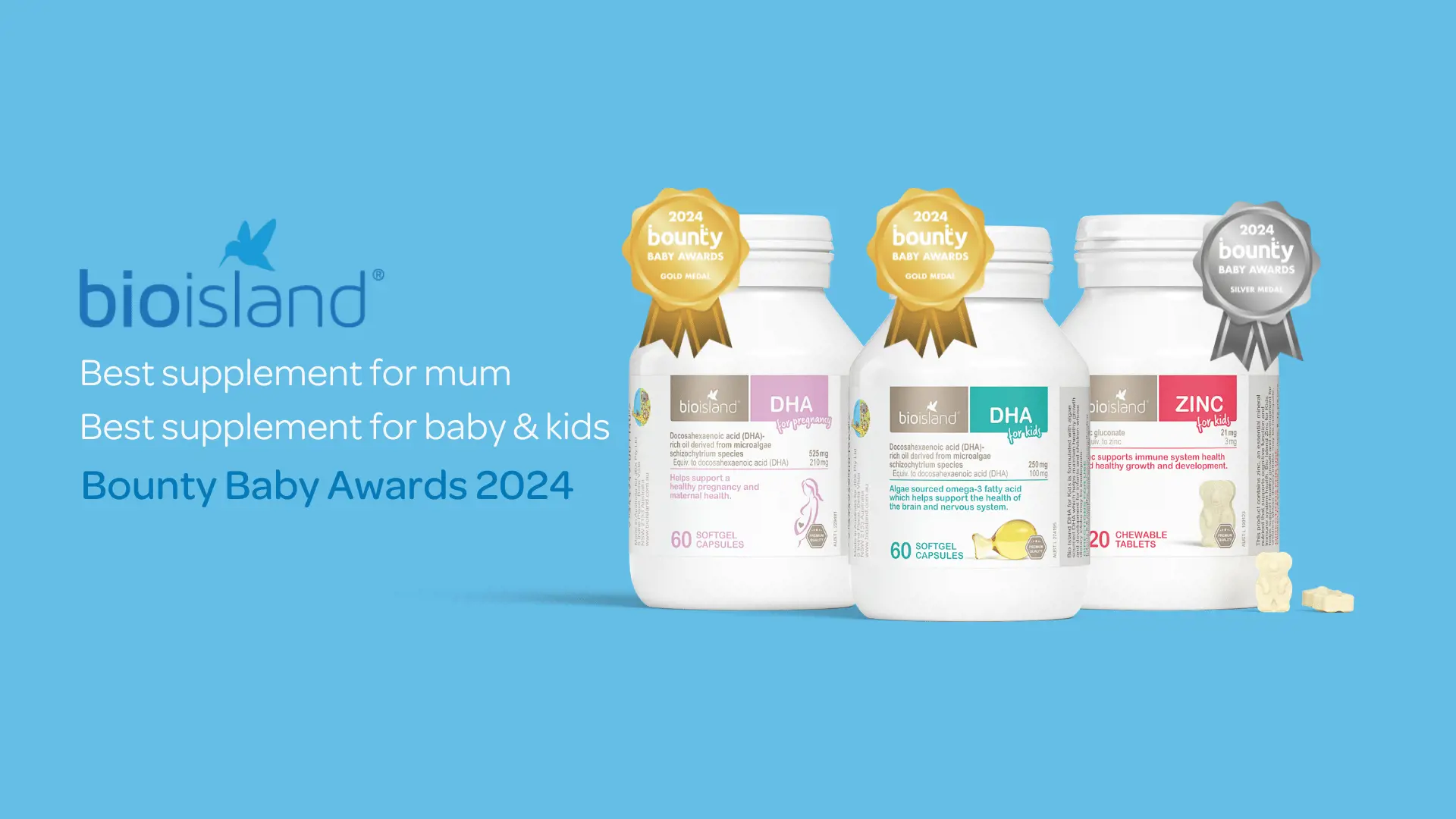
Sleep and pregnancy
Having enough good sleep when you're pregnant is important for you and your baby, especially in the last 3 months of pregnancy.
Healthy Pregnancy
By Bio Island Nutrition Team
Pregnancy is a time when you have to pay particular attention to your health. It is important that your preconception health is optimal so the transition and changes your body goes through can be a little bit smoother. Any existing health issues may also have an impact on the development and growth of your baby. Having a well-balanced diet and moderate an exercise routine is important but getting enough sleep is vital.
Most expectant mothers need more sleep than usual. Having enough good sleep when you're pregnant is important for both you and your baby. This is especially important in the last three months of your pregnancy. That being said, the different trimesters of pregnancy come with their own sleeping difficulties.
FIRST TRIMESTER
In the first trimester your body is going through enormous changes during foetal development. The development of the placenta and the baby’s organs occurs during this stage along with the vast maternal changes that also occur in response to the rapid onslaught of hormones. Progesterone levels start to surge throughout your body bringing on nausea, heartburn, the need to constantly pee and the sudden cravings for naps.
You may also be finding it hard to get comfortable especially if you are used to sleeping on your stomach as your breast can now be very tender. It is now best to start sleeping on your left side as this position improves the flow of blood and nutrients to your uterus and foetus and helps your body get rid of waste and fluid.
SECOND TRIMESTER
During the second trimester some begin to sleep more peacefully now, though still not as well as you may have done before. Your hormones are starting to settle down and if you had been suffering from morning sickness, hopefully that may have passed.
As you have more energy, it’s a good time to exercise more regularly as this can help you sleep better, as well as being beneficial for your mental wellbeing and physical health.
THIRD TRIMESTER
The third trimester can sometimes be even worse than the first when it comes to your sleep. Your belly feels huge and getting into a comfortable position can be a challenge. Hopefully by now your used to sleeping on your left side, but if sleeping this way, even with a pillow between your legs doesn’t help, try being propped up by cushions, which may help especially if your suffering form GORD (Gastro-oesophageal reflux disorder).
If it’s not heartburn, leg cramps or snoring, it’s likely your bundle of joy kicking around, using your bladder like a trampoline that will keep you awake and disrupting your sleep.
How can you improve your sleep during pregnancy? There are some simple things to do that can help:
- To reduce the number of toilet trips be sure to go to the toilet just before going to bed and avoid drinking too much in the evening.
- Try winding down before bed. Take a warm bath or read in a quiet place, anything that can help you relax.
- Avoid stimulants such as caffeine at least 2 hours before bed.
- Avoid going to bed on a full stomach. This is especially important if your suffering from GORD.
- Try to go to bed at the same time every night. Your internal clock works best if there is a regular sleep routine.
- Try not to have any distractions in the bedroom like TV’s, phones or laptops. The light from these devices can throw out your internal clock.
Improved sleep will not happen as soon as the changes are made. But if good sleep habits are maintained, sleep will hopefully get better. Try what works for you and stick to it as everyone is different. If you have tried everything and your sleep still hasn’t improved, visit your GP who can talk to you about other options.
This information does not take into account your personal situation and is general in nature. You should consider whether the information is appropriate for your needs and seek professional medical advice.
Always consult your healthcare professional before taking any supplements or if any concerns arise.





